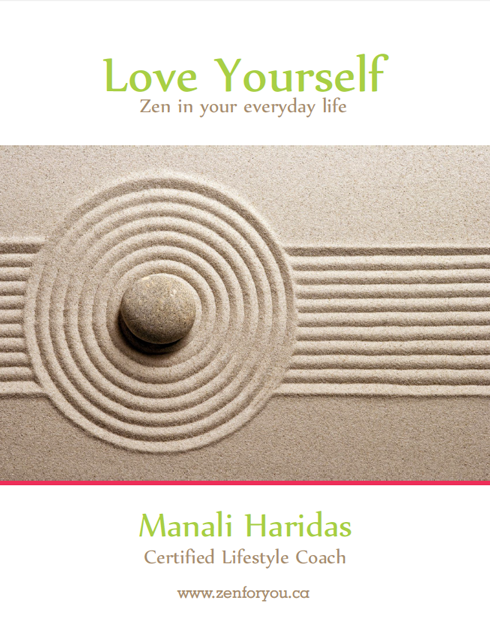Have you ever felt that inexplicable sense of calm and clarity after a meditation session? Or perhaps you’ve noticed a shift in your mood or energy levels?
These experiences might be more than just coincidence. There’s a growing body of scientific evidence suggesting that meditation can influence our brainwave frequencies, leading to profound changes in our mental, emotional, and physical well-being.
The Neuroscience of Meditation: Calming the Mind, Balancing the Body
The experience of profound calm and mental clarity following meditation is not merely anecdotal. A growing body of scientific research supports the notion that meditation can significantly influence our brain function.
Our brains are in a constant state of electrical activity, producing rhythmic patterns known as brainwaves. These fluctuations, measured in Hertz (Hz), correlate with different states of consciousness. For instance, beta waves (13-40 Hz) dominate during our waking, alert state, while alpha waves (8-12 Hz) are associated with relaxation and a state of focused attention. Deeper states of relaxation and meditation correlate with theta (4-8 Hz) and delta (0.5-4 Hz) waves, respectively. Functional neuroimaging studies have demonstrated that regular meditation practice can induce a shift in brainwave patterns, promoting a predominance of alpha and theta waves. This neural entrainment is believed to underlie the feelings of calmness, focus, and reduced anxiety often reported by meditators.
Furthermore, meditation has been shown to increase the thickness of the prefrontal cortex, the brain region associated with decision-making, attention, and emotional regulation. Conversely, it has been linked to a decrease in activity in the amygdala, a key component of the brain’s fear circuitry. These neural changes provide a mechanistic explanation for the observed improvements in cognitive function, emotional resilience, and stress management associated with meditation.
Meditation, Brainwaves, and Chakras Connection:
Our brains are constantly emitting electrical impulses, measured in brainwaves. These brainwaves fall into different categories: beta (alertness), alpha (relaxed focus), theta (deep relaxation), and delta (sleep). Meditation has been shown to shift our brainwaves from the beta and alpha states to the theta and delta states, associated with deep relaxation, creativity, and intuition.Beyond brainwaves, our bodies are also a complex network of energy centers known as chakras. These chakras correspond to different aspects of our being, from physical vitality to spiritual connection. The body’s intricate network of nerves and endocrine glands can be viewed as a biological correlate of these energetic pathways. When our chakras are aligned and balanced, we experience optimal well-being. Meditation helps to harmonize these energy centers by promoting a smooth flow of energy throughout the body.
Our bodies are intricate networks of energy, often conceptualized as a series of energy centers or chakras. These subtle energy vortices are believed to influence our physical, emotional, and spiritual well-being. From the root chakra, grounding us to the earth, to the crown chakra, connecting us to the cosmos, these energy centers play a vital role in our overall health and happiness. When our chakras are balanced, energy flows freely through our bodies, promoting optimal functioning of our organs and systems.
For instance, a balanced root chakra, located at the base of the spine, is associated with a strong sense of grounding and stability. It influences our adrenal glands, immune system, and lower extremities. Conversely, an imbalance in this chakra might manifest as physical issues such as back pain or digestive problems. Similarly, the heart chakra, situated in the center of the chest, is linked to love, compassion, and emotional well-being. When in harmony, it supports healthy lung and heart function. Imbalances can manifest as respiratory issues or difficulty forming deep connections.
By understanding the relationship between our chakras and bodily functions, we can gain valuable insights into our overall health and well-being. Meditation, along with other holistic practices, can be instrumental in balancing these energy centers and promoting optimal vitality. Meditation can facilitate the balancing of these energy centers by promoting relaxation and reducing stress, both of which are essential for optimal bodily function. When our chakras are in harmony, our organs function more efficiently, blood flow is optimized, and our overall vitality is enhanced.The interplay between brainwaves, chakras, and bodily functions is a complex and interconnected process. While scientific research is still uncovering the intricacies of this relationship, the emerging evidence strongly supports the notion that meditation is a powerful tool for promoting holistic well-being.
(Sources: Journal of Neuroscience, Frontiers in Psychology, Mindfulness, Journal of Alternative and Complementary Medicine/ Authors: Richard Davidson, Jon Kabat-Zinn, Daniel Goleman, Herbert Benson)
So, how can you incorporate meditation into your daily life to experience these benefits?
- Start small: Even five minutes of focused attention can make a difference.
- Find your style: Experiment with different meditation techniques to find what resonates with you. Guided meditations, mindfulness, and breathing exercises are all great starting points.
- Create a dedicated space: Designate a quiet area for your meditation practice.
- Consistency is key: Regular practice is essential for reaping the rewards of meditation.
- Be patient: It takes time to develop a consistent meditation practice. Don’t get discouraged if you find your mind wandering at first.
The benefits of meditation extend far beyond relaxation. By influencing our brainwave frequencies and harmonizing our chakras, meditation can help reduce stress, improve focus, enhance creativity, and boost our overall sense of well-being. Imagine a life where you feel calmer, more centered, and better equipped to handle life’s challenges. This is the power of meditation.
Meditation is more than just a relaxation technique; it’s a profound journey into the depths of our consciousness. At its core, meditation is a tool for harmonizing the mind, body, and spirit. A cornerstone of this process lies in its profound impact on our energy centers, or chakras.When we meditate, we create a sacred space within ourselves where the mind can quiet and the spirit can soar. This inward focus allows us to become more attuned to the subtle energies flowing through our bodies. As our awareness deepens, we begin to notice imbalances or blockages in our chakras. With consistent practice, meditation can help to clear these blockages, allowing energy to flow freely.
Direct Benefits of Meditation on Chakras and Daily Life:
- Chakra Balancing: Regular meditation helps to align and balance the seven primary chakras, ensuring a harmonious flow of energy throughout the body.
- Increased Mindfulness: Meditation cultivates present-moment awareness, enabling us to respond to life’s challenges with greater clarity and equanimity.
- Reduced Stress and Anxiety: By calming the mind and body, meditation effectively reduces stress hormones, promoting relaxation and inner peace.
- Improved Focus and Concentration: Regular meditation strengthens our ability to concentrate and maintain focus, enhancing productivity and cognitive function.
- Enhanced Creativity: Meditation stimulates the flow of creative energy, allowing for innovative ideas and solutions.
- Deeper Connection to Self: Meditation fosters a deeper understanding of one’s thoughts, emotions, and values, leading to greater self-awareness and personal growth.
- Spiritual Growth: Many people report a heightened sense of spirituality and connection to something larger than themselves through meditation.
The concept of the conscious and subconscious mind is central to understanding the power of meditation. Our conscious mind is the part of us that is aware of our surroundings and engages in logical thinking. The subconscious mind, on the other hand, is the repository of our memories, beliefs, and emotions. Meditation helps to bridge the gap between these two minds, allowing us to access the wisdom and creativity of the subconscious.
Neuroscience has provided compelling evidence of the benefits of meditation. Studies have shown that regular meditation can increase the thickness of the prefrontal cortex, the area of the brain responsible for decision-making, attention, and emotional regulation. Additionally, meditation has been linked to reduced activity in the amygdala, the brain’s fear center.Meditation is more than just a trendy wellness practice; it’s a powerful tool for cultivating inner peace, resilience, and overall well-being. By investing time in meditation, you’re not just taking care of your mind, but nurturing your entire being.But meditation isn’t just about individual benefits. The power of group meditation is undeniable. When you meditate with others, you create a collective energy field that can amplify the healing potential of the practice. Sharing your experience with like-minded individuals can also provide support and motivation.To integrate meditation into your life, start small and be consistent. Find a quiet space, choose a technique that resonates with you, and let go of expectations. Over time, you’ll discover a profound sense of calm and clarity.
Our Meditation Healing Circle Online Classes offer a unique opportunity to experience this collective power of shared intention. In this safe online space created for you; you will feel the amplification, relaxation and grounding. Additionally, group meditation can provide discipline and accountability, making it easier to maintain a regular practice.
To support you; here is a 2-week free pass for you. Join now and experience the power of group healing!
Register here!
By cultivating a daily meditation practice, we are investing in our long-term well-being. It’s a journey of self-discovery, healing, and transformation. Remember, consistency is key. Even short periods of meditation can yield significant benefits. Meditation isn’t about achieving perfection; it’s about the journey. So, take a deep breath, find a comfortable position, and let the magic of meditation unfold.
Love and light,
Manali



 Welcome!
Welcome!